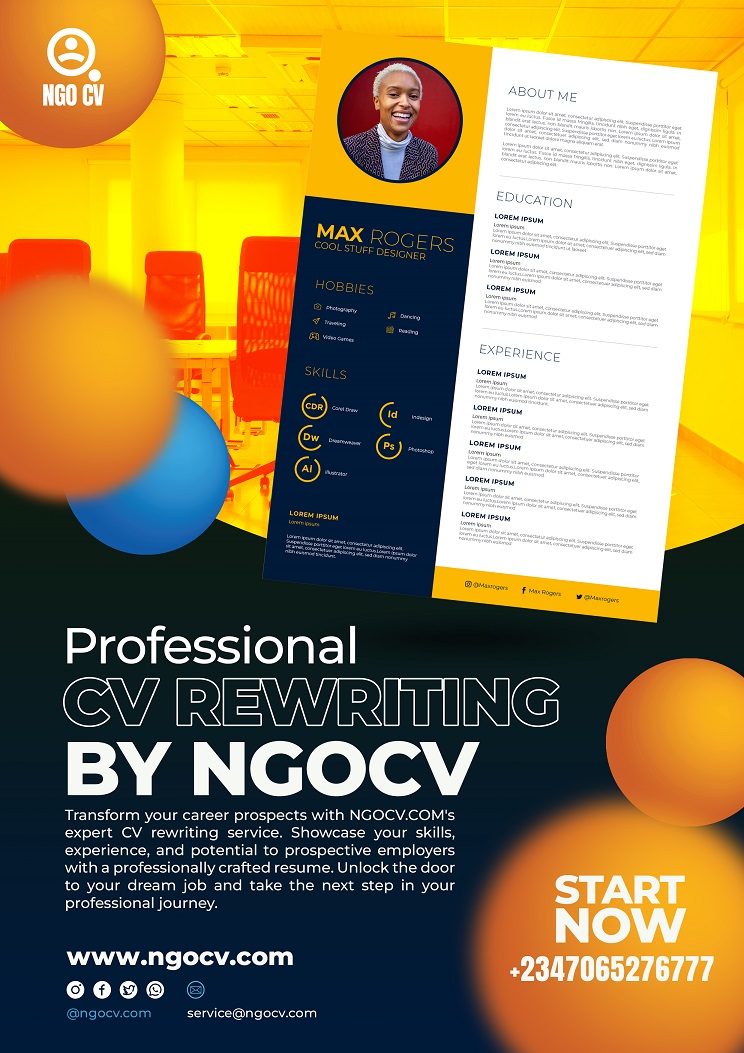BACKGROUND ON IMPACT AND REACH
REACH was born in 2010 as a joint initiative of two International NGOs (IMPACT Initiatives and ACTED) and the United Nations Operational Satellite Applications Programme (UNOSAT). REACH’s purpose is to promote and facilitate the development of information products that enhance the humanitarian community’s decision making and planning capacity for emergency, reconstruction and development contexts. REACH facilitates information management for aid actors through three complementary services: (a) need and situation assessments facilitated by REACH teams; (b) situation analysis using satellite imagery; (c) provision of related database and (web)-mapping facilities and expertise.
IMPACT Initiatives is a humanitarian NGO, based in Geneva, Switzerland. The organisation manages several initiatives, including the REACH Initiative. The IMPACT team comprises specialists in data collection, management and analysis and GIS. IMPACT was launched at the initiative of ACTED, an international NGO whose headquarter is based in Paris and is present in thirty countries. The two organizations have a strong complementarity formalized in a global partnership, enabling IMPACT to benefit from ACTED’s operational support on its fields of intervention.
We are currently looking for a Assessment Officer to cover our Northwest Nigeria portfolio, including our Multi-Sector Needs Assessment.
Position: Assessment Officer
Department: REACH
Contract duration: 6 months
Location: Abuja, with travel to field
Starting Date: ASAP
COUNTRY PROFILE
In North East Nigeria (NEN), the ongoing crisis continues to have a profound impact on the population, leading to displacement both within and out of the region and high rates of unmet needs among internally displaced persons. The conflict additionally exacerbates prior unmet needs among non-displaced and host communities, particularly in the BAY States of Borno, Adamawa and Yobe. While the primary driver of the conflict remains violent conflict, including ISWAP (Islamic State West Africa Province), JAS (Jama’atu Ahlis Sunna Lidda’awati wal-Jihad) and associated armed opposition groups (AOGs), other underlying factors, such as climate change, poverty and disease outbreaks, exacerbate need and further complicate aid delivery.
The 2021 Humanitarian Needs Overview (HNO) identified 8.7 million individuals in the three states of Borno, Adamawa and Yobe (collectively, the “BAY” states) to be in need of humanitarian assistance. Partners have faced increasing access restrictions to these areas since the middle of 2019. This situation has been further exacerbated by the COVID-19 pandemic since early 2020. As a result, the humanitarian community has experienced decreased capacities to comprehensively identify the scale of needs in NEN.
Meanwhile, for the better part of the last decade and particularly since 2014, the North West region of Nigeria (NWN) has experienced increasingly deadly intercommunal conflict and organized crime resulting in the displacement of more than 200,000 people, and the death and disappearance of thousands more. This same region has the highest poverty rate in Nigeria – some states recording poverty levels as much as 40% higher than the national average. Underlying the region’s accelerating insecurity and extreme poverty is the desertification of land brought on by climate change, which has left millions of pastoralists and farmers without their principal source of livelihood. Compounding the displacement crisis is intense flooding which has destroyed tens of thousands of homes and hundreds of thousands hectares of crops.
The overwhelming focus on the humanitarian crisis in the North East, coupled by the widespread inaccessibility and volatility of the North West, and the likely underestimation of the scale of insecurity, has resulted in a shortage of critical information needed to respond to the quickly growing crisis. As partners prepare to respond to the region’s increasing needs, they will near a clearer picture of displaced household’s needs, intentions, and demographics. Providing an updated evidence-based needs overview of populations is vital to inform partners’ strategic planning.
The fourth Multi-Sector Needs Assessment (MSNA) of the BAY states is being implemented in 2021 under the direction of the United Nations Office for the Coordination of Humanitarian Affairs (OCHA) and the Inter-Sector Coordination Group (ISCG), and facilitated by REACH. The objective of the MSNA is to identify and compare sectoral and inter-sectoral needs across population groups affected by the protracted crisis in all accessible areas in the BAY states. As such, the MSNA aims to support evidence-based planning and decision-making by humanitarian actors in NEN and, more specifically, to inform the 2022 HNO and the multi-year Humanitarian Response Plan (HRP).
Furthermore, in recognition of the urgent need for data in areas of Katsina, Sokoto and Zamfara, REACH is also conducting its inaugural MSNA in NWN reporting on all three affected states. This data will be shared through existing coordination structures, such as state governmental agencies, the North West Coordination Group, and relevant partner organizations, with additional feedback from partners used for both triangulations of gathered data as well as to inform research design and geographical targeting.
POSITION PROFILE
IMPACT is seeking a candidate, with experience designing, implementing and leading quantitative and qualitative assessments, to lead the REACH’s Multi-Sectoral Needs Assessment Team. Tasks will include supporting the MSNA in NEN and overseeing the full research cycle for the NWN MSNA including consolidation of secondary data, engagement with humanitarian partners, selection of indicators, creation of analysis tools, coordination of data collection, data analysis, and output production.
FUNCTIONS
The REACH Assessment Officer will fulfill the following functions:
Under the supervision of the Inter-Sectoral Unit Research Manager in Nigeria and of IMPACT’s HQ in Geneva, the REACH Assessment Officer will lead the research design and implementation of REACH-specific assessments, including their preparation, implementation, analysis, report writing and follow-up. S/he will also support related logistics, partner coordination, reporting and finance requirements and will be required to provide input to the strategic development of REACH in country.
In his/her mission, the REACH Assessment Officer will be hosted by ACTED and will fall under the responsibility of ACTED’s Country Director and his/her delegates. S/he and will fully abide to ACTED’s Security, HR, Administration and Logistics rules and regulations.
Responsibilities
The REACH Assessment Officer’s responsibilities include:
· In coordination with the Research Manager, designing and implementing REACH assessment strategy and research cycles;
· For each assessment, create ToRs and SOPs, ensure that they are approved by management (including Geneva HQ) and the relevant in-country stakeholders.
· Facilitate engagement and feedback on research design with external partners, including clusters, IM focal points and agency representatives;
· Coordinate external partners and internal teams during data collection;
· Support in organizing and facilitating joint analysis workshops, as applicable;
· Support the analysis and presentation of data using excel, R, tableau and other software.
· Ensure the writing of timely and accurate assessment reports and factsheets, which comply with REACH’s guidelines;
· Supporting the development and revision of assessment / programme strategies, reports or new proposals in coordination with REACH Country Coordinator, external representation of REACH with Donors, Partners and the wider Aid Community through clusters and sectoral working groups;
· Other tasks falling within REACH’s functions as requested by supervisors.
1. REACH Assessment Management and Coordination
Objective 1.1: Management of assessments process
The REACH Assessment Officer is responsible for the design of the methodology and tools associated with each assessment, according to REACH requirements and principles. He/she will oversee the planning, implementation and follow-up of all REACH and projects specific assessment activities conducted in country.
The REACH Assessment Officer shall manage logistics, financial, administration and HR processes directly related to REACH and liaise accordingly with the relevant ACTED counterpart. He/she is responsible for supporting the implementation of proper ACTED FLAT procedures in all REACH interventions.
He/she will ensure that project/field staff are given training and complete all the necessary documentation in line with program requirements set by REACH. He/she will also be responsible for capacity building and staff development of enumerators, Field Officers and Junior Assessment Officers.
Objective 1.2: Implementation
The REACH Assessment Officer is responsible for the implementation of assessment projects, providing support to the development of assessment, database and GIS tools with the REACH team. This will specifically include, with the GIS/DB team, designing of data collection tools (household surveys, focus groups, and more) as well as the development, analysis and review of databases.
Objective 1.3: Grants Management
The REACH Assessment Officer shall provide technical support to the relevant ACTED department in terms of the preparation of new project proposals, development of programme strategies, implementation of project activities, and any other required REACH input to ACTED projects for added-value.
The REACH Assessment Officer is responsible for supporting the timely and accurate preparation of narrative and financial reports related to REACH activities in country through close liaison with the IMPACT Country Coordinator and the ACTED Project Development and Finance departments. The REACH Assessment Officer shall liaise with other REACH Officers in the region and throughout IMPACT Initiatives’ and ACTED’s networks to provide and receive support in the expansion of REACH globally.
2. REACH Reporting
Objective 2.1: Assessment Reporting
The REACH Assessment Officer is responsible for the analysis of data and drafting into REACH products such as reports, briefs and factsheets. He/she will liaise with the in-country assessment team, Geneva and in-country GIS/DB Officers in order to represent data in interactive web map or static map format, when relevant.
The REACH Assessment Officer is responsible for the designated timeline of reports to be submitted to project partners and donors. He/she must ensure the writing of timely and accurate assessment reports and factsheets, ensuring the quality and accuracy of technical information provided as well as the confidentiality and protection of collected information. He/she will ensure that assessment reports contribute to aid coordination and planning and add to the general base of field knowledge in the country for all organisations working in the areas.
Objective 2.2: Programmatic Reporting
He/she will also support the drafting of narrative reports and contribute to the development of financial reports through regular budgetary follow-up, in coordination with the REACH Country Coordinator.
The REACH Assessment Officer will also store, organize and disseminate assessments, project documents and best practices among ACTED and IPs. He/she will support timely and accurate reporting to IMPACT Headquarters.
3. Team Coordination
Objective 3.1: Staff Coordination
The REACH Assessment Officer will liaise on day-to-day management of project and field staff both directly and remotely. He/she is expected to help guide and direct REACH staff and prepare and follow up workplans related to the assessment.
The REACH Assessment Officer will help ensure that all field teams are comprehensively briefed on the objective, expected outputs and that the overall implementation strategy of any given activity is clearly understood. He/she will ensure that project/field staff are given training and support the completion of all the necessary documentation in line with program requirements set by REACH.
4. External Engagement
Representation of ACTED/REACH in relevant meetings/ technical working groups in country. This specifically will include liaising with external partners to identify potential for data sets to be integrated into existing databases and mapped to support the coordination of the broader humanitarian community.
He/she will participate in inter-NGO meetings and those of UN agencies and any other relevant inter- governmental institutions at the national or provincial level.
More generally, the REACH Assessment Officer is expected to contribute to the creation of a positive image and overall credibility of the organisation, notably through the application of REACH mandate, ethics, values and stand-point with regard to other actors.
CONFIDENTIALITY
The REACH Assessment Officer will maintain the strictest confidentiality on all data collected and related processes. He/she will actively take measures to prevent the unauthorized sharing of any information and data belonging to IMPACT and its partners, or collected during his/her assignment with IMPACT.
ACCOUNTABILITY TO COMMUNITIES AND BENEFICIARIES
The staff member is responsible for ensuring that all relations with the communities we work are conducted in a respectful and consultative manner. Due attention must be paid to ensuring that communities are adequately consulted and informed about REACH programme objectives, activities, beneficiary selection criteria, and methodologies. This is the responsibility of every REACH staff member.
REQUIREMENTS
· Excellent academic qualifications, including a Master degree in relevant discipline;
· Excellent quantitative and qualitative analytical skills;
· At least 2 years of relevant working experience in humanitarian settings;
· Excellent team management, coordination, organisational and planning skills required, including an ability to manage large workloads, oversee multiple teams and effectively meet deadlines, through an excellent ability to multi-task and prioritise;
· Experience with external engagement (donors, partners and other key stakeholders) required;
· Familiarity with the humanitarian coordination system required;
· Excellent communication and drafting skills for reporting and external coordination;
· Solution-oriented, flexible, and open-minded, including ability to operate in a cross-cultural environment required;
· Ability to operate in a cross-cultural environment requiring flexibility;
· Ability to operate in a complex and challenging security environment;
· Fluency in English required;
· Advanced skills in Excel as well as R (preferred) or related statistical programming;
· Knowledge of qualitative analysis and related analytical software (e.g. NVivo) preferred;
· Knowledge of the Adobe Suite software, particularly Illustrator and InDesign an asset.
· Ability to work independently.
CONDITIONS
· Salary defined by the IMPACT salary grid; educational level, expertise, hardship, security, and performance are considered for pay bonus
· Additional monthly living allowance provided in country by IMPACT’s partner ACTED
· Food and lodging provided at the organisation’s guesthouse/or housing allowance (depending on contract length and country of assignment)
· Transportation costs covered, including additional return ticket + luggage allowance
Provision of medical, life, and repatriation insurance + retirement package
How to apply
Kindly submit to the following link: REACH Assessment Officer | Impact (impact-initiatives.org)
In case you encounter challenges using the application form, please contact us via [email protected]




